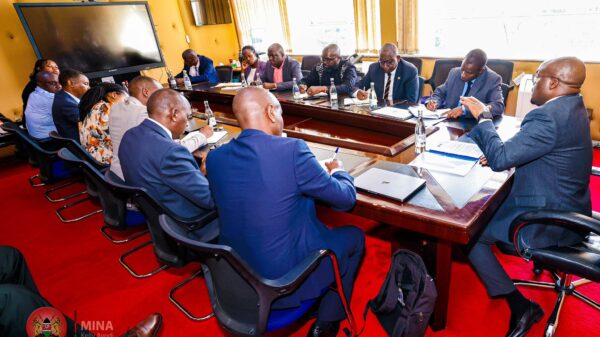Saint Kanyuma: The MP Who Tried to Delete His Way Out of a Scandal.
This week, Homa Bay Town MP George Peter Kaluma became the focus of a social media storm. What started as a dismissive tweet toward Gen Z protestors, calling their movement “street nonsense”, ended with scandalous allegations, viral memes, and a country once again questioning the integrity of its leaders.

A blogger, reacting to Kaluma’s harsh tone, accused the MP of misconduct during a 2013 official trip to Russia. The claim? That Kaluma solicited a sex worker, refused to pay, and was later assaulted in retaliation by a group that included transgender individuals. Screenshots and hotel photos followed, but no official report, no verification. In short, the allegation remains unproven.
So why does the unproven scandal still matter? Because it exposes the widening gap between public persona and private conduct. Whether or not the Russia incident actually happened, the public reaction reflects a deeper suspicion: that many leaders weaponize morality as a shield, using rhetoric about values to obscure their own contradictions.
This is a man who once proposed a bill seeking 50-year prison terms for those engaged in LGBTQ activities or advocacy. He has publicly supported Russia’s labeling of LGBTQ movements as extremist, and celebrated policies that curb funding to organizations supporting queer rights. Yet now, he stands accused of hypocrisy by the very youth he once dismissed as misled.
Adding to the heat, Kaluma began deleting tweets shortly after the scandal broke, especially those targeting the protests. But Kenyan netizens are experts in screenshots, and nothing stays buried for long. One resurfaced tweet had Kaluma praising Donald Trump for cutting funds to LGBTQ programs in Africa. Another, a sarcastic reply from MP Babu Owino, asked if Kaluma had recovered from “gonorrhea”, a quip that now carries new, if speculative, weight.
Kaluma may be the latest example, but he is far from alone.. A 2024 study by the German Institute for International and Security Affairs highlighted how African lawmakers, including Kaluma, are key players in advancing policy agendas shaped by European right-wing groups, while branding them as “African values.” That’s not cultural protection. That’s ideological outsourcing.
His legislative proposals mirror rhetoric promoted by international groups like CitizenGO and Agenda Europe. This is not merely a Kenyan culture war, it’s part of a broader, coordinated campaign shaped by foreign ideological influence.
Some critics have called the blogger’s actions irresponsible or even defamatory. But others argue it’s citizen journalism at work. In a country where institutional accountability can lag, social media has become the new checks-and-balances system.
Still, there’s a line. Bloggers and digital watchdogs must maintain ethical standards, verifying claims, protecting sources, and avoiding slander. The Kaluma case is a test: can digital platforms expose misconduct without falling into the traps of unverified sensationalism?
Whether or not the St. Petersburg incident occurred, the questions it raises about political integrity remain. Kaluma’s legislative agenda, tweet history, and treatment of protestors paint a troubling portrait, one that Kenyans are right to scrutinize.
Public funds support our politicians’ travel and lifestyle. The public deserves answers, not just about tweets, but about conduct, consistency, and character.
As we screenshot and expose, let’s remember what this moment is really about. It’s not just one man’s scandal. It’s about demanding a new political culture, one where hypocrisy is called out, truth is pursued, and no leader is above accountability.
Mockery followed. Kaluma was given the nickname “Kaluma Kanyuma,” a play on his name reflecting both derision and cultural humor. The internet never forgets. And neither should we.
What's Your Reaction?














































































































